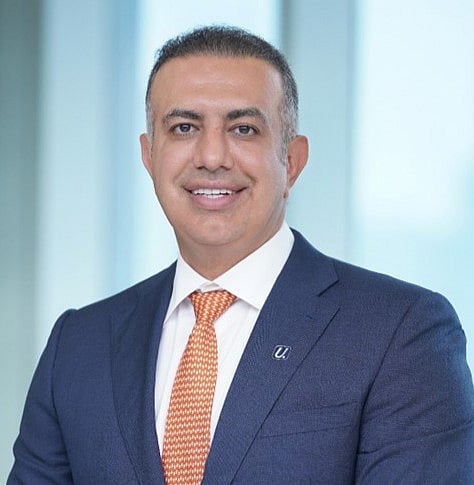Buying freehold property in Dubai: Your guide to securing full ownership
Find out the benefits, prime locations, visa options, financing and the buying process

Dubai: Expatriates and foreign investors can now fully own property in one of Dubai’s most sought-after areas, the iconic Sheikh Zayed Road and the rapidly developing Al Jaddaf, according to a recent announcement by the Dubai Land Department (DLD). This move allows property owners of any nationality to convert their ownership to freehold status, providing a direct title deed and making Dubai’s property market even more appealing to international buyers.
Sheikh Zayed Road, renowned for its prime location, is in high demand, with easy access to commercial, retail, and leisure hubs. Arash Jalili, CEO of Unique Properties, explained to Gulf News that the area is a magnet for businesses and high-net-worth individuals. Meanwhile, Al Jaddaf is fast becoming a prime investment hotspot, with luxury developments on the rise and its proximity to Dubai Creek and the International Airport making it an increasingly attractive choice.
Dubai’s real estate market remains a magnet for investors, thanks to its strategic location, world-class infrastructure, and long-term visa opportunities. However, before making a move, buyers need to understand the costs, legal considerations, and the importance of partnering with registered agents and developers to ensure a seamless transaction. Here’s everything you need to know about purchasing property in Dubai’s freehold zones.
What are freehold properties?
“This property category allows full ownership of both the property and the land it sits on. Available to both UAE nationals and foreign investors in designated areas, freehold properties offer complete control, allowing buyers to sell, rent, or transfer ownership freely,” Jalili explained.
On the other hand, the UAE also offers leasehold properties. “Leasehold ownership allows the buyer to own the property for a fixed term (usually up to 99 years) but does not include ownership of the land. After the lease term ends, ownership reverts to the landowner. Leasehold properties may also have more restrictions on renting or selling,” he explained.
He noted that freehold properties typically hold higher value than leasehold properties in Dubai.
“They provide full ownership and long-term security, making them more attractive to both local and international investors. Freehold properties tend to appreciate more steadily and offer greater market appeal compared to leasehold properties, which may have limited buyer interest due to land ownership restrictions,” he added.
Freehold properties typically hold higher value than leasehold properties in Dubai. They provide full ownership and long-term security, making them more attractive to both local and international investors. Freehold properties tend to appreciate in value more steadily and offer greater market appeal compared to leasehold properties, which may have limited buyer interest due to land ownership restrictions.

Why are freehold properties in Dubai attractive for foreign property ownership?
In addition to the potential for high rental yields and capital appreciation, Liam Joshua Dawett, sales manager at Betterhomes (Business Bay Branch) pointed out why freeholds tend to be more popular for foreign investors in the UAE.
1. The UAE Golden Visa
Purchasing a property or group of properties worth at least Dh2 million is required for the long-term self-sponsored 10-year visa and real estate is available in freehold zones.
“With longer 10-year visas also being tested for select expatriates working in priority sectors, further links with freehold property possession seem likely down the road. The resultant residency rights make personal stays more convenient and bank mortgages easier to acquire for such assets. They offer a helpful angle for foreigners without employment ties to the Emirates,” Dawett explained.
2. Complete ownership
For foreign investors in the UAE, freeholds allow complete ownership. Owners can rent, sell, and upgrade their units without restrictions, subject to NOC from the developer.
3. Long-term investment
There is no time frame for how long owners can keep their properties. The possibility to pass the property down generations and benefit from the capital appreciation is possible.
4. Other visa opportunities
If you do not have a minimum of Dh2 million to spare, the Dubai Land Department does offer other long-term residency visa options for investors.
“Three-year property visa - the Dubai Land Department issued this visa for people who invest in a property worth at least Dh750,000. The property can be in one of up to three properties. Five-year visa - Requires ownership of property worth at least Dh5 million," he explained.
Additionally, longer 10-year visas are being trialled for certain expatriates working in priority sectors, and this could lead to stronger links between owning freehold property and residency rights in the future. These residency rights make it easier for owners to stay in the country and secure bank mortgages for their properties. This is particularly beneficial for foreigners who do not have employment ties to the UAE.

What are popular freehold areas in Dubai?
If you are looking into which freehold areas have higher ROI, here is a breakdown of some popular freehold areas in Dubai in addition to new ones like Sheikh Zayed Road and Al Jaddaf, according to Dawett:
Downtown Dubai, Business Bay - Luxury high-rise apartments, iconic attractions like Burj Khalifa and Dubai Mall, urban lifestyle
Dubai Marina - high-rise apartments, with podium villas, High-density skyscraper district, beachfront location, vibrant community, and benefits of a waterfront community.
Jumeirah Beach Residence (JBR) - Modern waterfront apartments with ocean views, resort-style amenities
Palm Jumeirah - Upscale branded residences, oceanfront living, luxury hotels nearby
Arabian Ranches, Dubai Hills - Family-friendly community with spacious villas, parks and amenities
Damac Hills - Green master-planned community in Dubailand, golf course and other amenities planned
These areas offer freehold properties across a range of budgets. Other popular destinations include The Greens, Dubai Sports City, Jumeirah Golf Estates, and Jumeirah Islands.
Understanding payment plans and financing options for expats
Dubai offers a variety of financing options for purchasing freehold properties. Conventional bank mortgages, available to residents, expatriates, and non-residents, typically require a stable income and a strong credit history.
"Developer payment plans provide flexibility by enabling buyers to pay in instalments, including after the handover," said Ramjee Iyer, Chairman and Managing Director of Acube Developments. "Islamic home financing, which complies with Sharia law, operates on a profit-sharing model instead of charging interest."
Foreign buyers can choose from several mortgage types, including fixed-rate, variable-rate, and Islamic mortgages. Loan-to-value (LTV) ratios are capped at 75 per cent for properties priced below Dh5 million and 60 per cent for those above this threshold.
Developers also offer innovative payment schemes. "One popular option is the post-handover payment plan, where buyers pay a portion during construction and settle the balance after handover," Iyer explained.
There are various financing options for purchasing freehold properties in Dubai. Conventional bank mortgages, accessible to residents, expats, and non-residents, require a steady income and a good credit history. Developer payment plans offer flexibility by allowing buyers to pay over time, even post-handover. Islamic home financing, compliant with Sharia law, operates on a profit-sharing basis rather than interest.

Steps to buy property in a freehold area in Dubai
Purchasing property in a freehold area is a structured process, whether you are seeking a home or an investment.
1. Understand the costs and legal considerations
“You should understand legal considerations such as registering property transactions with the Dubai Land Department and being aware of associated costs like registration fees and agent commissions,” Iyer highlighted.
Financial planning is crucial, establishing a clear budget and exploring different financing options is advisable.
2. Choose the right location and property type
Choosing the right location and property type is key, with various neighbourhoods catering to different lifestyles.
“Conducting thorough market research and employing a knowledgeable real estate agent can provide valuable insights. First-time buyers should thoroughly understand the community of their chosen location,” he explained.
It's also crucial to consider the proximity to essential services like hospitals, schools, entertainment options, accessibility, and transportation modes.
3. Future growth potential
It's also crucial to evaluate the future growth potential of the areas and the likelihood of property appreciation.
“Areas with planned developments or infrastructure improvements are likely to offer higher returns. Additionally, considering resale and rental opportunities is important in case the need to rent or sell arises,” Iyer said.
3. Work with a registered broker and agent
"Collaborating with a reputable real estate agent is crucial," said Anthony Joseph Abou Jaoude, CEO of Prime Stay Holiday Rentals. "Agents can guide you through Dubai’s property buying regulations, help you find suitable properties, negotiate deals, and manage administrative processes."
It is vital to verify that your broker is registered with the Real Estate Regulatory Agency (RERA). "Always ensure payments are made directly to the party named on the title deed," Jaoude advised.
If Arabic or English is not your first language, consider hiring a translator to ensure you understand all contract terms before signing.
4. Deal with registered developers
"When buying off-plan properties, verify that the developer is registered with the DLD. The Dubai Rest app can be used to monitor the construction process," Jaoude noted.
Working with a reputable real estate agent is crucial when buying property in Dubai. An agent can help you understand Dubai property buying rules, find suitable properties, negotiate prices and guide you through the legal and administrative processes. It is also vital to verify that your broker is registered with the Real Estate Regulatory Agency (RERA).

The process for buying property in freehold areas
According to Jaoude, the process is relatively straightforward, whether you're seeking the perfect home or a lucrative real estate investment, as he provides a detailed breakdown of the steps involved.
Step 1: Draft the initial contract
The first step is to ask your broker to draft a contract between you and the seller. “This document typically outlines the property value, size, details of the buyer and seller, the payment method, and the contract duration,” he said.
Step 2: Sign the Memorandum of Understanding (MOU)
Next, both parties sign the Memorandum of Understanding (MOU), also referred to as Form F. This document includes the main terms of the sale and purchase transaction, such as the names of the buyer and seller, property details, price, and completion date.
“As the buyer, you will also need to provide a 10 per cent security cheque made payable to the seller. This cheque is usually held by the brokerage until the day of the transfer,” he said,
Step 3: Obtain a No Objection Certificate (NOC)
The third step involves applying for a No Objection Certificate (NOC) from the developer. All parties must be present to sign the necessary documents.
Step 4: Transfer Ownership
The final step is completing the property transfer at the Dubai Land Department (DLD) or a trustee office. The following documents are required:
Passports and Emirates ID of both parties.
A manager’s cheque for the full property amount.
The original NOC and Form F.
A manager’s cheque or credit card payment to the DLD for four per cent of the property value plus Dh580.
Property Registration Fee:
For properties valued below Dh500,000: Dh2,000 + five per cent VAT.
For properties valued above Dh500,000: Dh4,000 + five per cent VAT.
Title deed issuance fee: Dh250.
Agent’s fee: Two per cent of the property value.
"When it comes to the primary market, the process is much quicker. Buyers only need to provide a copy of their passport and ID to the developer's representative, who will then prepare a reservation form outlining the property details, payment plan, and the buyer's information. Once both parties sign the form, the developer will issue the Sales Purchase Agreement (SPA), which is also signed by both parties, thereby finalising the purchase," Jaoude explained.
When it comes to the primary market, the process is much quicker. Buyers only need to provide a copy of their passport and ID to the developer's representative, who will then prepare a reservation form outlining the property details, payment plan, and the buyer's information. Once both parties sign the form, the developer will issue the Sales Purchase Agreement (SPA), which is also signed by both parties, thereby finalising the purchaseAnthony Joseph Abou Jaoude, CEO of Prime Stay Holiday Rentals
Sign up for the Daily Briefing
Get the latest news and updates straight to your inbox



